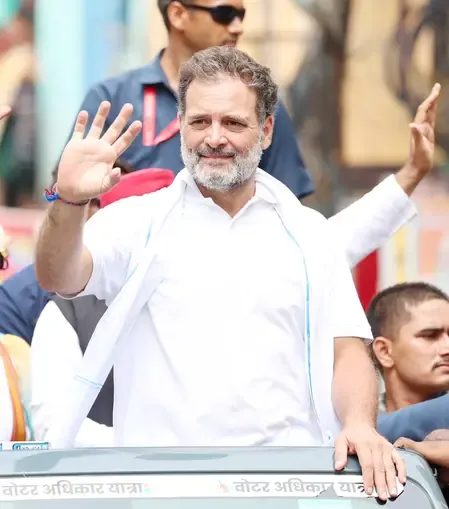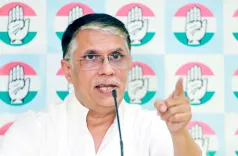What Now for Rahul Gandhi After Allahabad HC Reserves Order on Sikh Remarks Case?

Synopsis
Key Takeaways
- The Allahabad High Court has reserved its ruling on Rahul Gandhi's plea.
- Controversial remarks made during a speech in the US are at the center of this case.
- The implications of the ruling could affect communal relations in India.
- The legal proceedings are currently on hold pending the High Court's decision.
- Freedom of speech versus communal harmony remains a key theme in this situation.
Prayagraj, Sep 3 (NationPress) The Allahabad High Court has reserved its decision on a petition submitted by Rahul Gandhi, the Leader of Opposition in Lok Sabha, who is contesting a Varanasi court ruling that mandated the filing of an FIR against him due to his purported comments regarding the Sikh community.
The High Court instructed the Varanasi court to pause any further actions in this case until the High Court renders its judgment.
The controversy began when Nageshwar Mishra approached a magistrate's court in Varanasi, requesting an FIR against Gandhi.
Mishra claimed that during a trip to the United States in September 2024, Gandhi made a “provocative statement” questioning whether Sikhs in India feel secure wearing turbans or visiting gurdwaras.
He argued that the comments were inflammatory and could disrupt communal harmony.
The magistrate initially dismissed Mishra’s request, stating that since the alleged incident occurred outside of India, approval from the central government was required before proceeding.
However, Mishra appealed this dismissal to the Sessions Court, which overturned the magistrate’s decision and instructed the lower court to reconsider the case.
The Sessions Court determined that the magistrate had made an error by rejecting the plea solely based on the lack of sanction.
In response to this ruling, Rahul Gandhi appealed to the Allahabad High Court. His lawyer contended that Gandhi’s words had been misconstrued.
He asserted that Gandhi did not incite the Sikh community to revolt or wage war against the government.
“One cannot isolate a single sentence from a complete address to interpret its meaning. The entirety of the speech must be analyzed to grasp the intent,” the lawyer argued.
Conversely, the representative for the Uttar Pradesh government maintained that as the Leader of Opposition, Gandhi holds a significant position, and his statements resonate both domestically and internationally.
“When he speaks abroad, it is perceived as the unified voice of the opposition. His remarks were divisive and provocative,” the state's attorney stated.
This controversy originated from Gandhi’s speech in the US last year, where he allegedly claimed that the environment in India was not favorable for Sikhs, and they encountered challenges in practicing their faith openly.
After hearing arguments from both parties, the High Court has reserved its ruling regarding the plea.







